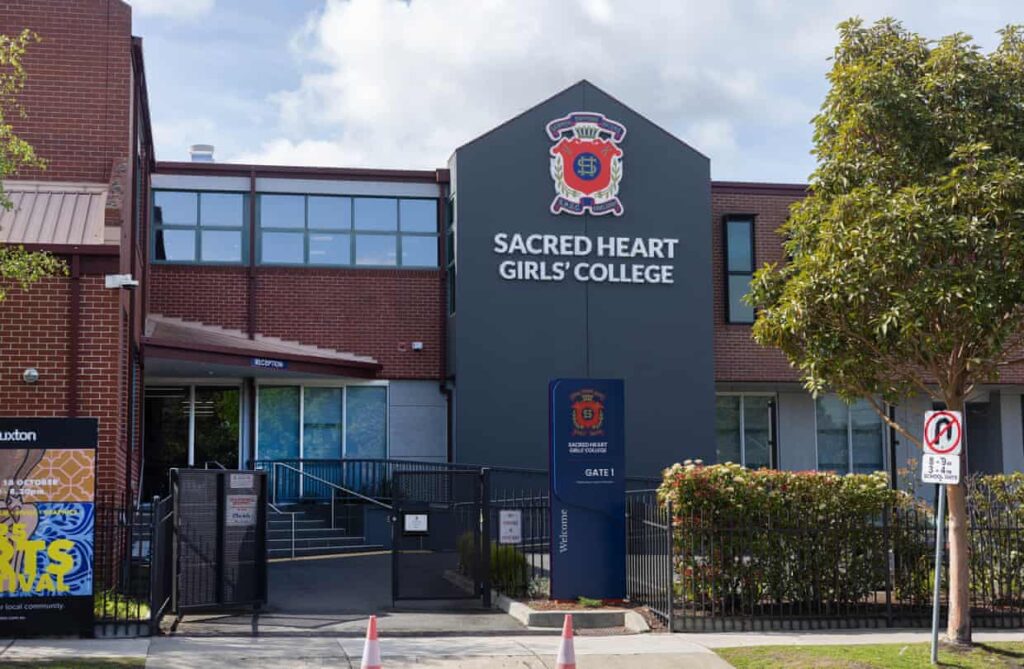
A non-binary teacher in Melbourne is taking legal action against the Melbourne Archdiocese Catholic Schools (MACS) for refusing to recognize their preferred pronouns and title. Myka Sanders, who uses they/them pronouns and Mx as their title, is challenging the school’s stance, which they argue contradicts both state and federal anti-discrimination laws.
Two years ago, Sanders approached Sacred Heart Girls College in Oakleigh to request recognition of their gender identity. The school denied this request, claiming it conflicted with “the ideas of Catholic anthropology.” This decision has sparked a significant legal battle, as MACS is one of the largest education organizations in Australia.
The Independent Education Union (IEU), representing Sanders, has taken the dispute to the Victorian Civil and Administrative Tribunal. However, MACS successfully argued that its defense relies on federal legislation, leading to the tribunal ruling it could not hear the case. The matter is now set to be heard in the magistrates court next month.
While MACS allows Sanders to use their chosen name, which is reflected on their identification documents, the school has continued to use incorrect pronouns in certain communications. Sanders expressed their frustration, stating, “I love working with the staff there. I love working with the students. It’s great, but it’s also really depressing, because I’m not allowed to be me.”
The legal implications of this case are significant. Under the state’s Equal Opportunity Act, LGBTQ+ individuals are protected from discrimination in religious schools unless such actions are deemed “proportionate.” In contrast, the federal Sex Discrimination Act contains broad exemptions for religious institutions, creating a potential conflict between state and federal laws.
Ruth Gaze, a discrimination law expert at Melbourne University, highlighted the unusual situation. “Most of the time, state and federal anti-discrimination laws work in harmony,” she noted. “However, this case could be a test of which law prevails.” If the court rules in favor of the Equal Opportunity Act, it may prompt religious institutions to lobby for changes to the legislation.
The IEU is particularly concerned about the implications of this case. David Brear, the union’s general secretary, emphasized the broader ramifications. “This case matters well beyond Victoria,” he stated. “If we cannot defend anti-discrimination laws here, similar protections around the country will also be at risk.”
In a statement, MACS refrained from commenting on the ongoing legal proceedings but affirmed its commitment to treating all individuals within the school community with respect. They described Sanders as a “valued” member of staff.
Sanders shared a personal experience that underscores the emotional toll of the situation. In correspondence from April 2024, MACS stated that titles like Mx contradict “Catholic anthropology” and suggested that Sanders’ identity poses ideological challenges to the school’s mission. “It’s gut-wrenching every time I see a colleague get married, or there’s a change of name or title,” Sanders remarked. “They get to do it without any issue whatsoever, but I’m not allowed to.”
As the case approaches its scheduled hearing, it serves as a poignant reminder of the ongoing struggle for recognition and respect within educational environments. For Sanders, the opportunity to use their correct pronouns would signify a moment of liberation. “It would feel like the first time I could properly breathe out since I started working at the school,” they said. The outcome of this legal battle could have lasting implications for the rights of educators and students in faith-based institutions across Australia.






